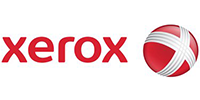
Whether you’re travelling for business or leisure, wasting unnecessary time on your journey is a common source of frustration. From dealing with heavy traffic to roadworks and other types of delays, wasting time is almost guaranteed to make most people experience additional stress before they even get to where they want to go.
Let’s face it, 96 hours per year is a long time spent doing anything. And according to new data on traffic congestion, this is precisely how long city-dwellers can waste sitting in traffic.
But what if I told you a major source of wasted time occurred not during the time spent travelling but at the end of the journey?
Parking pains
The travel infrastructure of our cities has a huge impact on how we behave during our working day and it also influences how we plan our leisure time. It determines how we structure our day and is a prime factor behind where we choose to work or live. Curious to understand the everyday challenges facing commuters, Xerox commissioned a study in 19 of Europe’s largest cities to find out how people are getting around, and how the experience could be made better.
According to the ‘Keeping our cities moving’ report, the state of parking is a real and growing concern. At present, approximately 9 per cent of drivers spend more than 15 minutes every day just looking for somewhere to leave their car. A manageable number, perhaps, but when you look at the larger, traffic-heavy cities like London or Paris, (20 percent and 19 per cent of drivers, respectively), the figure moves upwards of 10 minutes towards 30 minutes. That’s before you even factor in the cost, which for 42 per cent of commuters is the number one concern of parking.
As our urban centres continue to grow, it shouldn’t follow that increased amounts of time and money are spent on parking. To allow this is to allow people to start the day stressed, increase pressure on their finances and likely impact morale when getting from one place to another.
So why not remove cars altogether?
The obvious question here is why, in 2016, we still allow our days to revolve around parking in cities. The answer, unfortunately, is that transport systems just aren’t seen as adequate across the continent.
For 24 per cent of survey respondents, the car is still their only mode of transport available to them. That’s a fairly poor reflection of public transport systems that are supposed to ease congestion. With convenience and speed cited as the key factors behind any transport choice, the car is still seen as number one for those travelling to and from work. Over three quarters (77 per cent) still think it’s the fastest way to get around; faster even than the train.
With the car still held in such high regard, the challenge for Europe’s cities becomes how to support better parking in and around prime locations such as offices, shopping centres and other popular areas. For the city planner, the long-term goal must be to build alternatives that will actually drive a change in behaviour.
How do we fix it?
Overwhelmingly 49 per cent of city-dwellers agree with the notion that “Better public transport provision will heavily influence the economic success of my city”. There is a clear appetite to move beyond a reliance on cars, but there first needs to be a workable alternative.
What does that look like? For many, it’s an integrated ticketing system, a ‘one-for-all’ city pass that will allow them to move from train, to bus, to boat without separate queues or payments. Make public transport easier – engineer the customer experience – and the implication is that use will increase.
The smarter use of data will also be key. If built on the right technology, cities can now use real-time occupancy data and flexible payment systems to provide simpler and more efficient parking options. Thanks to better tracking systems, improved information and guidance, cities can actively manage parking-related congestion, maximise revenue, and use demand-based pricing to influence drivers’ behaviour.
By thinking about the transport infrastructure in this way, and helping to guide our city councils accordingly, we may be able to end the cycle of traffic cruising our cities, looking for a place to stop.
The people in your city will thank you for it.
About Xerox Transport
Xerox is helping change the way the world works. By applying our expertise in imaging, business process, analytics, automation and user-centric insights, we engineer the flow of work to provide greater productivity, efficiency and personalisation. Our employees create meaningful innovations and provide business process services, printing equipment, software and solutions that make a real difference for our clients and their customers in 180 countries. On January 29, 2016, Xerox announced that it plans to separate into two independent, publicly-traded companies: a business process outsourcing company and a document technology company. Xerox expects to complete the separation by year-end 2016.




Comments
There are no comments yet for this item
Join the discussion